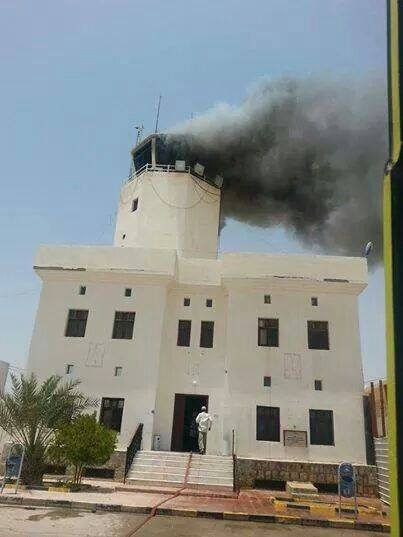According to Yemeni security officials, fighters from al Qaeda in the Arabian Peninsula (AQAP) carried out an attack on Seyoun Airport in Hadramout province in eastern Yemen on June 26. The strategically significant city of Seyoun, the second-largest city in the lawless province, and was also targeted last month, when it was stormed by AQAP on May 23.
Three Yemeni soldiers who had been stationed at an airport entrance used for both civilian and military purposes were reported killed in the recent attack. The AQAP assault team took control of various sections of the airport and managed to seize the flight control tower.
The attack took place as a civilian airplane was landing at the airport. According to the Yemeni military, the plane was evacuated and its passengers were escorted to safety. Some news sources claimed that nine civilians were killed in the attack on the airport, but this figure could not be confirmed.
The Yemeni military claimed on June 26 that it had killed six AQAP fighters during a counterstrike on the militant-held airport.
AQAP fighters also carried out another attack in Seyoun at the same time as the airport attack, targeting the headquarters of the Yemeni first military region. A suicide car bomber drove into the military headquarters and killed five soldiers. Local officials in Hadramout said the bombing was likely intended to serve as a diversion from the main assault on the airport, preventing the military from reinforcing its troops there.
In related news, on June 28, clashes lasting for about an hour were reported in Seyoun between Yemeni soldiers and AQAP militants. The Yemeni military claimed that two soldiers and four AQAP militants were killed in the fighting, and that three soldiers were wounded.
President Abd Rabbo Mansour Hadi addressed the Yemeni people over the weekend, in a speech timed for the beginning of the Muslim holy month of Ramadan, and pledged to continue the fight against AQAP. According to Al Riyadh, Hadi said that “our national and religious duty forces all of us to be hand in hand and of one heart in combating terrorism and eradicate its grave scourge, because or wide battle against terrorism continues.”
Hadi added that “Yemen, in its military and people, is fighting terrorism on behalf of the world,” and said Yemen’s ongoing offensive against AQAP has “aborted the terrorists’ plan to establish an international training camp in Yemen.”
Are you a dedicated reader of FDD's Long War Journal? Has our research benefitted you or your team over the years? Support our independent reporting and analysis today by considering a one-time or monthly donation. Thanks for reading! You can make a tax-deductible donation here.









1 Comment
Great article. You didn’t state the obvious context though… Of course the guerillas want to destroy this and any airport they can. It’s a devastating strategy. Watch the Battle for Iraq turn on airfields and (lack of) air power.
Tel Aviv airport under attack from missiles.
Baghdad airport under attack from mortars.
Tripoli airport under attack from guerillas.
Karachi airport under attack from suicide bombers.
Peshawar airport under attack from machine guns.
‘Specific’ attack threat at Uganda’s Entebbe airport, says US.
ALL THIS HAPPENING THIS SUMMER, THIS MONTH.
This is what losing the “war on terror” looks like with a metastasized, dispersed enemy causing huge (expensive) disruptions to air travel, and not just via the airport attacks.
Human bombs, laptop bombs, sport drink bombs, smartphone bombs, undy bombs, printer bombs, shoe bombs…. baby bottle bombs!
The only common thread is angry Muslim killers who think they are heroes dying for religion (and leaders who understand that crippling air travel is an extremely effective way to harm a larger power). Ugh. Such losers. But they are being pointed in the “right” directions by better and better leaders with many years of combat experience, which is concerning.